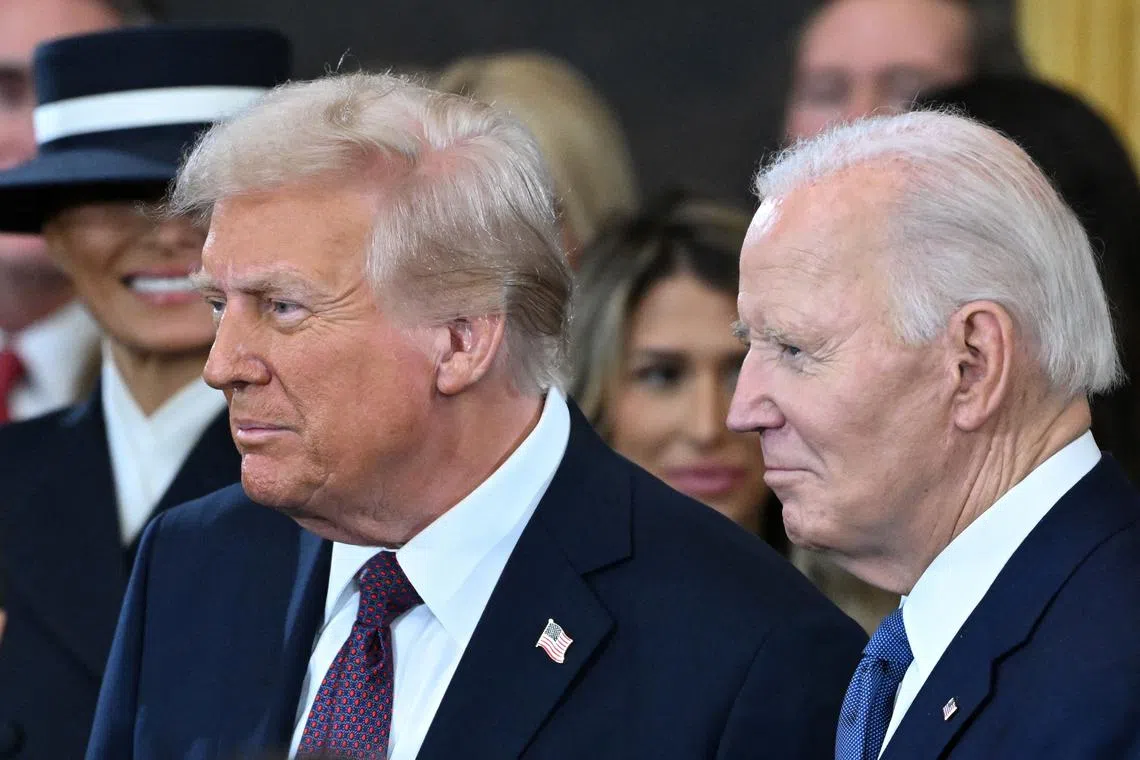Trump calls Biden last-minute pardons ‘void’ because of ‘autopen’ usage
Sign up now: Get ST's newsletters delivered to your inbox

US President Donald Trump said the pardons were void because his predecessor signed them with an autopen.
PHOTO: REUTERS
WASHINGTON – US President Donald Trump said his predecessor’s 11th-hour pardons of members of Congress who investigated the Jan 6 insurrection were “void, vacant and of no further force or effect”, signalling his administration may attempt to upend more than a century of law and practice for presidential pardons.
In a statement on his Truth Social platform just after midnight on March 17, Mr Trump said the pardons were void because then President Joe Biden signed them with an autopen.
His comments follow similar arguments from the conservative Heritage Foundation that Mr Biden used an autopen based on seemingly identical signatures found on several Biden documents.
Mr Trump, in his Truth Social post, did not present any evidence.
The pardon power has long been considered one of the most absolute powers a president has, and courts have been reluctant to put any limits on how they are granted.
While Mr Trump acknowledged the courts should ultimately decide on the validity of the pardons, his comments open the possibility that the Justice Department may attempt to prosecute some of the President’s biggest political adversaries.
They include former congressman Liz Cheney, retired general Mark Milley and infectious diseases expert Anthony Fauci, all pardoned on the last day of Mr Biden’s presidency
“It’s not my decision – that’ll be up to a court – but I would say that they’re null and void, because I’m sure Biden didn’t have any idea that it was taking place, and somebody was using an autopen to sign off and to give pardons,” Mr Trump told reporters aboard Air Force One on March 16.
A 2024 federal appeals court decision said a pardon does not even have to be in writing.
“The answer is undoubtedly no,” the Fourth Circuit Court of Appeals ruled. “The plain language of the Constitution imposes no such limit.”
A 1929 Justice Department opinion held that “neither the Constitution nor statute prescribed the method by which executive clemency shall be exercised or evidenced. It is wholly for the president to decide”.
The George W. Bush administration cited that opinion in defending Mr Bush’s use of the autopen, a robotic instrument that presidents have used for decades to keep up with the volumes of routine correspondence they have to sign.
But its use has been controversial because it casts into question whether the president personally approved the action. BLOOMBERG


